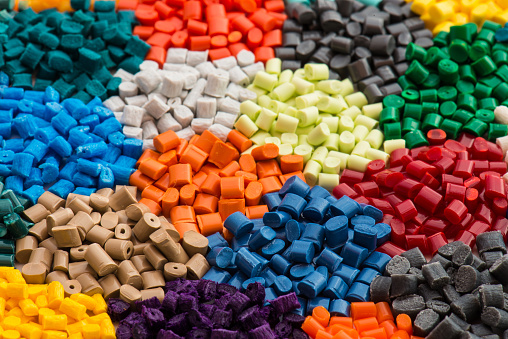How much do you know about modified plastics?
Plastic is a material with high molecular polymer as the main component. It is composed of synthetic resin and fillers, plasticizers, stabilizers, lubricants, colorants and other additives. It is in a fluid state during manufacturing and processing to facilitate modeling, and assumes a solid shape when processing is complete.
The main component of plastic is synthetic resin. Resin was originally named after the lipids secreted by animals and plants, such as rosin, shellac, etc. Synthetic resin (sometimes directly referred to as “resin”) refers to a high molecular polymer that has not been mixed with various additives. Resin accounts for about 40% to 100% of the total weight of plastic. The basic properties of plastics are mainly determined by the properties of the resin, but additives also play an important role.
Why should plastic be modified?
The so-called “plastic modification” refers to the method of changing its original performance, improving one or more aspects of performance by adding one or more other substances to plastic resin, so as to achieve the purpose of expanding its scope of application. Modified plastic materials are collectively referred to as “modified plastics”.
Since the development of plastic chemical research and development, thousands of polymer materials have been synthesized, of which only more than a hundred have industrial value. More than 90% of the resin materials commonly used in plastics are concentrated in five general-purpose resins (PE, PP, PVC, PS, ABS) At present, it is very difficult to continue to synthesize a large number of new polymer materials, which is neither economical nor realistic.

Therefore, in-depth study of the relationship between polymer composition, structure and performance, and on this basis, the modification of existing plastics to manufacture suitable new plastic materials has become one of the effective ways to develop the plastics industry. Therefore, the non-toxic plastic industry has achieved considerable development in recent years.
Plastic modification refers to changing the properties of plastic materials in the expected direction through physical, chemical or both methods, or reducing the cost significantly, or improving certain properties, or endowing the plastic with Material new functionality. The modification process can occur during the polymerization of synthetic resins, that is, chemical modification, such as copolymerization, grafting, crosslinking, etc., or it can be carried out during the processing of synthetic resins, that is, physical modification, such as filling, copolymerization, etc. Mix, enhance, etc.etc.











